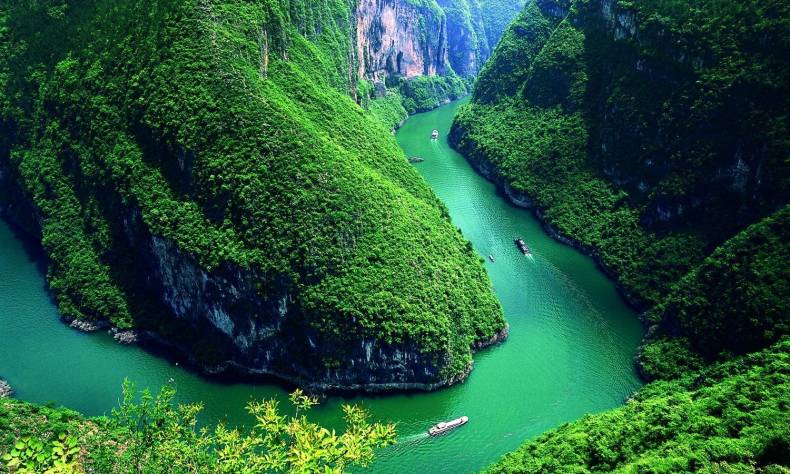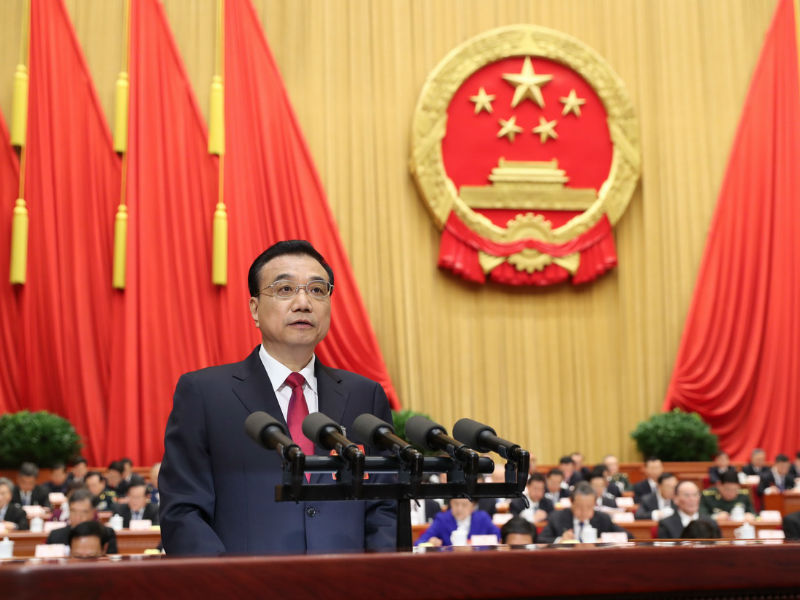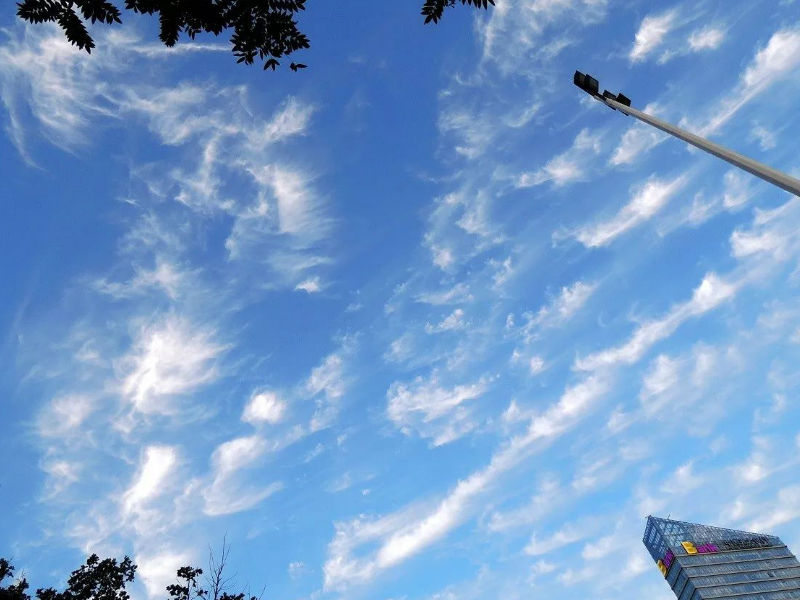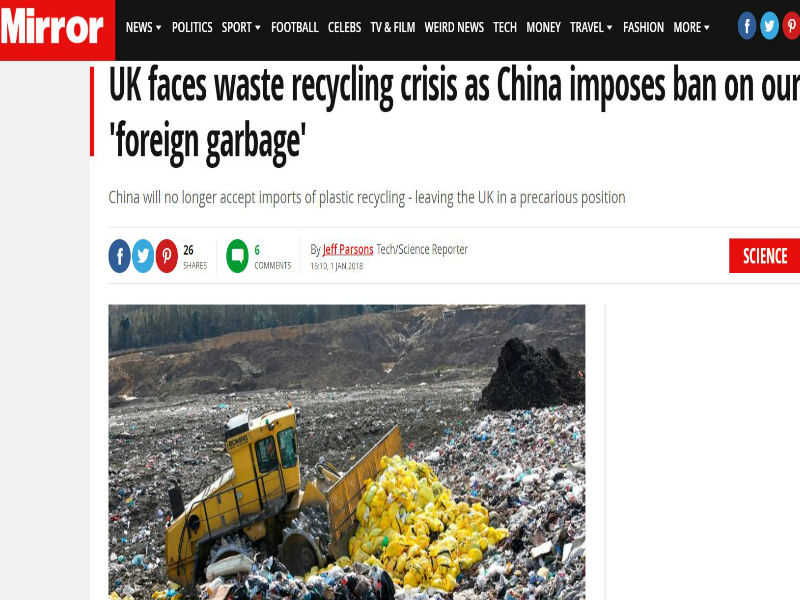
Government Work Report 2018: Guard the Ecological Red Lines and Protect Our Waters and Mountains
In energy related areas, “ecosystem” is the most frequently seen key word in the Government Work Report 2018, which appears 16 times. Followed by “energy” which is used 7 times.
By Lan Hong
The Government Work Report 2018 focuses especially on energy saving and environmental protection. In energy related areas, “ecosystem” is the most frequently seen key word, which appears 16 times. Followed by “energy” which is used 7 times.

In the Government Work Report 2018 (GWR 2018), premier Li Keqiang first of all looks back at the results accomplished in energy saving and environmental protection. Significant achievements have been made over the past five years, he said, noting that both energy and water consumption per unit of GDP have fallen more than 20 percent. Emissions of major pollutants have consistently declined, and the number of days with heavy air pollution in key cities has been halved, he said. Forest coverage has expanded by 10.87 million hectares. The area suffering from desertification has been reduced by around 2,000 square kilometers. The “defense of the blue sky” has made significant progress, bringing more blue-sky days to Beijing. China has achieved significant progress in green development.
Alongside the successes, the Premier presented the way ahead and the targets for energy saving and environmental protection, with five points highlighted in the GWR 2018 as below:
Building a Close Connection between Energy Saving and Environmental Protection
For 2018, China will improve ecological environmental protection. The GWR 2018 says. This shows China’s determination to meet the commitment made at the Paris Summit.
The close connection between energy saving and environmental protection is also embodied in the readjustment of industry structure and development of new energy vehicles as major tools to manage environmental problems. According to the report, China will cut ineffective steel capacity of 30 million tonnes and coal capacity of 150 million tonnes in 2018. Meanwhile, coal-fired power generating units with a capacity of less than 300,000 kilowatts that fail to meet standards will be closed this year.
The report proposes to expand the scope of new energy vehicles, including the three-year extension of purchase tax privilege for new energy vehicles and the restriction of second-hand car transfer. Germany’s magazine Manager says China will have 4.8 million more electric car charging stations by 2020. By 2020, there will be 5 million new energy vehicles (full electric vehicles and hybrid electric vehicles) in China.
Clear and Quantified Targets, Optimization of Action and Policy

The GWR 2018 gives specific quantified indicator for ecological environmental protection.
For atmosphere protection, this year, we will cut sulfur dioxide and nitrogen oxide emissions by 3 percent and achieve a continuous decline in PM2.5 density in key areas, according to the Premier Li Keqiang. He also listed several supporting policies: We will encourage upgrading in the steel and other industries to achieve ultra-low emissions. We will raise standards on the emission of pollutants, and set deadlines for meeting required discharge standards. A special program will be launched to reduce exhaust emissions by diesel trucks that exceed standards. For water protection, we will continue efforts to prevent and control water and soil pollution. This year, chemical oxygen demand and ammonia nitrogen emissions will be cut by 2 percent. Water environments in key river basins and sea areas will be improved through comprehensive measures, and thorough action will be taken to clean up black, malodorous water bodies. We will strengthen the development of sewage treatment facilities, and improve policy on charges for their services.
Reform and Improve the Systems in Energy Saving and Environmental Protection
In GWR 2018, Premier Li points out we will reform and improve the system for ecological and environmental regulation, strengthen regulation over the use of natural ecological spaces, roll out a system of compensation for ecological and environmental damage, and improve the compensation mechanisms for ecological conservation, using more effective institutions to achieve ecological and environmental protection. The reform and optimization of the policies will greatly contribute to energy saving and environmental protection in 2018, and in the coming decades.
Waste Import Banned

The Government Work Report last year did not mention banning imported waste. From 1 Jan 2018, China has banned the import of 24 types of solid waste, including waste plastics, unsorted scrap paper, discarded textiles, vanadium slag and other forms of waste. In April 2017 a reform plan to improve the management of solid waste imports was adopted, requiring a substantial reduction in the amount and types of solid waste imports.
The GWR 2018 prohibits waste imports, which shows that the government has attached great importance to the issue. In the past China imported waste to ease the shortage of industrial raw materials, but this resulted in severe air and water pollution, and soil contamination. The import of waste became a major contributor to pollution and had a detrimental effect on the health of workers in the industry.The general administration of customs has also joined the defense of “blue skies”. From 12 March 2018, China’s customs authorities have joined the Blue Sky 2018 campaign fighting against the import of waste.
Guard the Ecological Red Line
The report says: we will redouble efforts to protect and restore ecosystems, and finish setting redlines for ecological conservation across the country. The supporting policies and quantified indicators, this year, more than 6.67 million hectares of land will be afforested, and crop rotation and fallow land trials will be increased to cover 2 million hectares of farmland. Wetland protection and restoration will be expended and pilot reform for the national park system will be continued.
The red line is for the protection of the national and regional ecosystem. To maintain the integrity and connectivity of the ecosystem, industrialization and urbanization is restricted in geographical regions subject to the red line . Following the task of drafting the red lines in the Government Work Report of 2017, this year the government has switched its focus to setting up all the ecological red lines.
Lan Hong, professor in the school of environment and natural resources, Renmin University of China, and vice dean of ecological economy study institute.
Editor:Dong Lingyi
 Facebook
Facebook
 Twitter
Twitter
 Linkedin
Linkedin
 Google +
Google +


